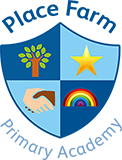Intent
Our aim is to improve the life chances of every child, whatever their background, skills and capabilities, to work with parents and preschool setting to continue their learning journey and develop skills and interests to allow them to be lifelong learners.
We have created an environment for all children to access, they have the opportunity to develop in all areas of learning and have knowledgeable adults in the provision to support each child’s learning journey and ignite their love for learning.
Our curriculum supports the children to progress in ways that support all types of learning styles, offering many different opportunities to all children, both in the inside and outside environment. Within EYFS, there is a strong emphasis on the Prime Areas of learning; Personal, Social and Emotional Development, Physical Development and Communication and Language, including Oracy. Oracy is key ‘ingredient’ for children to thrive, we recognise that oracy not only improves academic outcomes, but is a life skill to ensure success beyond school, in life and future employment. Oracy develops children’s thinking and understanding, which in turn promotes self-confidence, resilience and empathy which support the child’s wellbeing.
We provide the best education we can and have a balance diet of play and learning, to ensure that the children have high levels of involvement and engagement in all that they do.
Implementation
We provide a curriculum to support children’s involvement and well-being. If a child is happy and engaged in their learning they are building the foundations for future success.
We follow the Early Years Foundation Stage curriculum and provide an environment that includes; language, awe and wonder, creativity, problem solving, risk taking, team work, challenge and excitement.
The children are involved in a mixture of adult focused activities and play, both inside and outside the classroom. Teachers teach purposeful lessons of Maths, Phonics and Themed sessions and the continuous provision is enhanced as the academic year progresses.
Impact
Baseline
Prior to children starting, staff spend time speaking to the child’s parents, previous settings and read previous learning journeys to gain an understanding of the whole child and where they are at.
Prior to starting school, the children are invited to come into Place Farm for Transition sessions, we have a group of 10 children at one time come into Early Years classrooms for a ‘taster session’, this gives all adults the opportunity to get to know each child in more depth, find out their likes, dislikes and interests and just take time to get to know each child individually. This means that in September when the children start they are comfortable with the adults and are ready to start their Place Farm journey.
During the first half term Early Years, all staff use ongoing assessments, observations and conversations with the child to develop a baseline assessment. This identifies each individual’s starting points in all areas so we can plan experiences to ensure progress.
The following baseline assessments are also carried out:
- The RBA (Statutory Reception Baseline Assessment): This assessment focuses on ‘Language, Communication and Literacy,’ and ‘Mathematics.’ The purpose of this is to show the progress children make from Reception until the end of Key Stage 2.
- Ongoing Observations: Practitioners draw on their knowledge of the child and their own expert professional judgements through discussions with other practitioners, photographs and physical examples such as a child’s drawing/making.
Assessment
Phonic assessments are carried out using phonics Tracker every half term to quickly identify pupils that are not making expected progress. Our aim is for children to ‘keep up’ rather than ‘catch up’ where possible.
Early Years Tracker is an assessment tool used to track progress in all children in EYFS. Maths assessments are carried out to ensure the children are understanding and can demonstrate the different concepted they are taught.
Parents are given feedback termly about their child and their successes and next steps of learning, this then give families their formation they need to support their child at home.
